Where to Report Price Gouging in South Carolina?
When a natural disaster or other emergency disrupts the economy, some retailers take advantage of the situation by unreasonably increasing their prices. As a consumer, you should know where to report price gouging. South Carolina considers price gouging a crime and encourages residents to report it when they witness or experience it.
Everyone should be able to access necessary goods for a reasonable price during an emergency. If you are a victim of , you may be feeling stressed or overwhelmed by events that caused the economic disruption in the first place, in addition to the stress of an unfair business transaction. DoNotPay can help you quickly report price gouging to the proper authorities, so you can hold businesses accountable for their pricing practices.
What Qualifies as Price Gouging in South Carolina?
Price Gouging Law
South Carolina's price gouging law applies when there is an abnormal disruption in the market. The law can go into effect in various situations, including when either the governor or the president declares a state of emergency or when the South Carolina attorney general announces a disruption in the market. This can happen whenever an emergency disrupts the economic activity or makes certain goods harder to get. Such events can include:
- Extreme weather events
- Power outages
- Strikes
- Civil disorder
Recent Examples
Two notable times that this has happened recently are:
- Gas shortage: In the spring of 2021, the Colonial Pipeline cyberattack created a gas shortage in South Carolina. This shortage put state regulators on alert for gas stations charging unreasonable prices.
- Pandemic: With the declaration of the COVID-19 pandemic as a national and state emergency in March 2020, price gouging laws went into effect. The early months of the pandemic saw concerns about unreasonable prices for items like hand sanitizer, cleaning products, and toilet paper.
Acceptable Prices
South Carolina considers price gouging to be charging an "unconscionable price," which it defines as a price that grossly exceeds the average price for the product. Since there is no set percentage increase, determining whether a business is engaging in price gouging or simply showing normal variations in pricing can be difficult. During an emergency, a 20 percent or greater price increase can sign illegal price gouging.
Proof is Difficult
South Carolina's attorney general has informed consumers that successfully proving a price-gouging case can be difficult under the state's laws. A price might seem unfair to consumers but still, be . It's good to keep this in mind and manage your expectations if you report price gouging.
Penalties
Price gouging is a misdemeanor crime in South Carolina. If convicted, merchants can face up to a $1,000 fine, 30 days in jail, or both.
How Can I Report Price Gouging in South Carolina?
There are for South Carolina residents to report price gouging to the state attorney general's office. You can choose the method that is most convenient for you.
| Phone | Call 803-737-3953 to report your experience. |
| Send an email to pricegouging@scag.gov describing what you experienced. Attach any photo evidence that you took. | |
| Online | Fill out the form available on the attorney general's website. |
Whichever way you choose to report price gouging, you'll need several pieces of information. Make sure you have:
- Time and place of the transaction
- Name and address of the business
- Price you paid
- Any prices at nearby businesses
- Photos that identify the company and the price
- Your name and contact information
Keep track of all the relevant information so you can be prepared for any follow-up communication from the attorney general's office.
Easily Protect Yourself From Price Gouging With DoNotPay
If you've witnessed or been a victim of price gouging in South Carolina, you're probably in a high-stress situation in addition to feeling frustrated about overpaying for a product. Figuring out how to report price gouging correctly and with all the required information can be challenging. DoNotPay 's fast, easy and successful system allows you to get clear evidence of a price-gouging transaction without actually spending your hard-earned money. Whether you see unfair pricing online or in person, DoNotPay can help you report it.
How to protect against price gouging using DoNotPay:
If you want to protect against price gouging but don't know where to start, DoNotPay has you covered in 5 easy steps:
- Open the Price Gouging Protection product on DoNotPay.
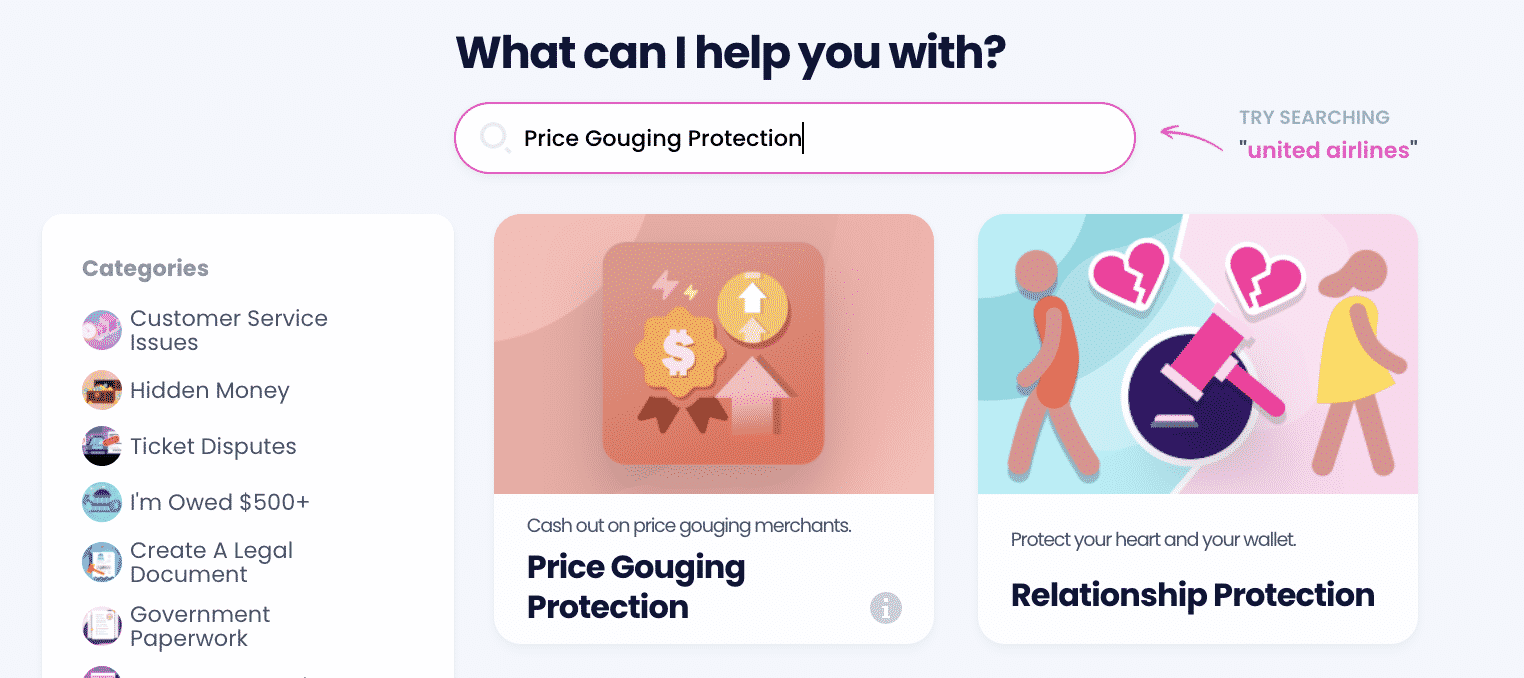
- Generate a fake credit card to use with the merchant.
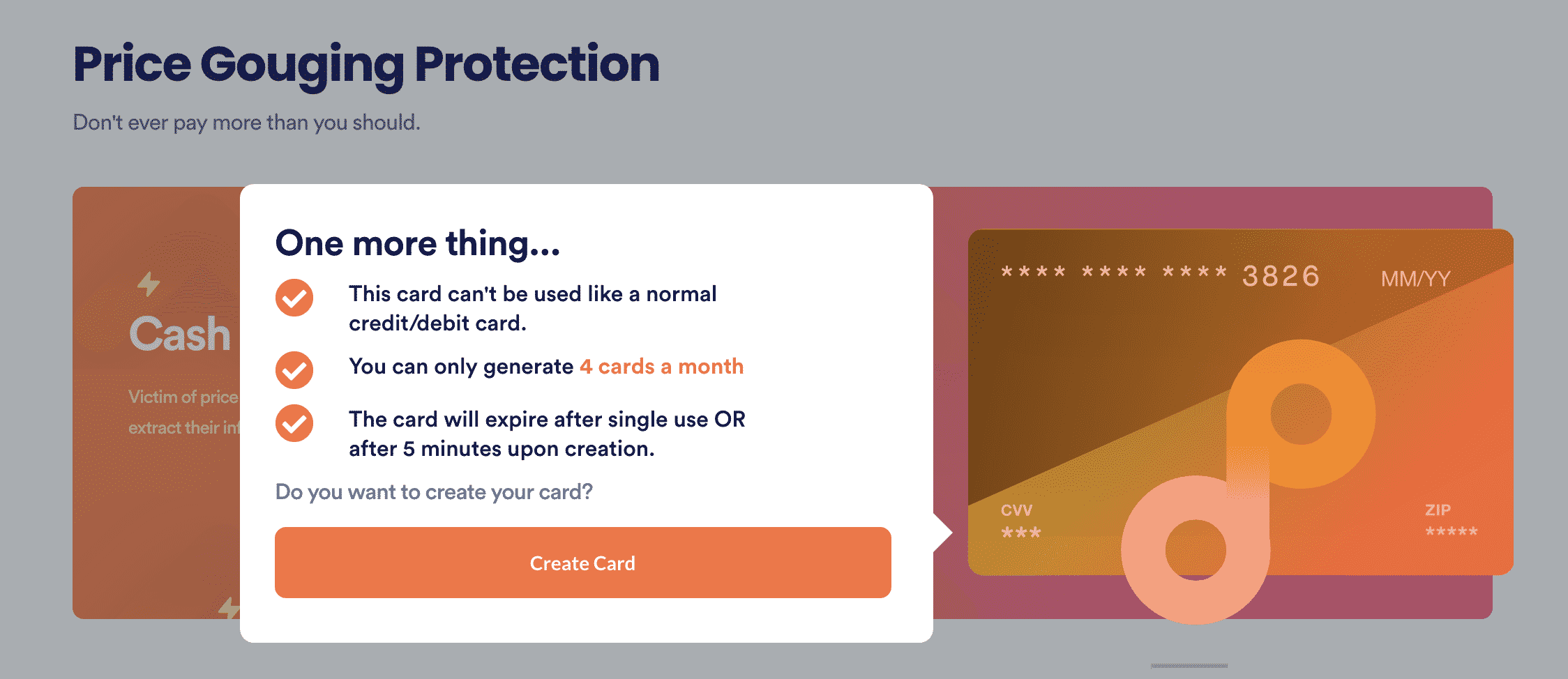
- Complete the transaction with the fake credit card.
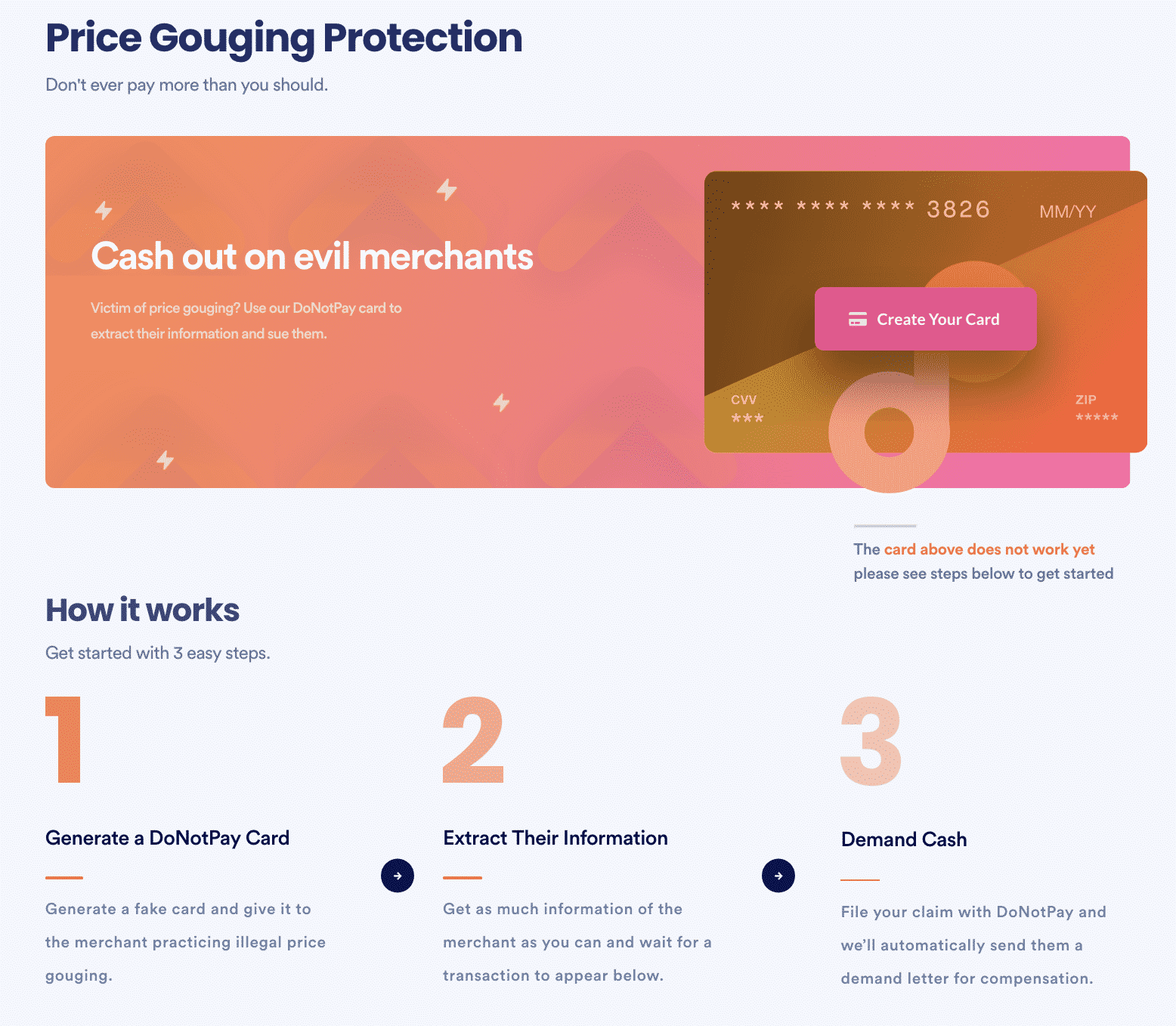
- Save a photo of the transaction as evidence and start the demand letter process.
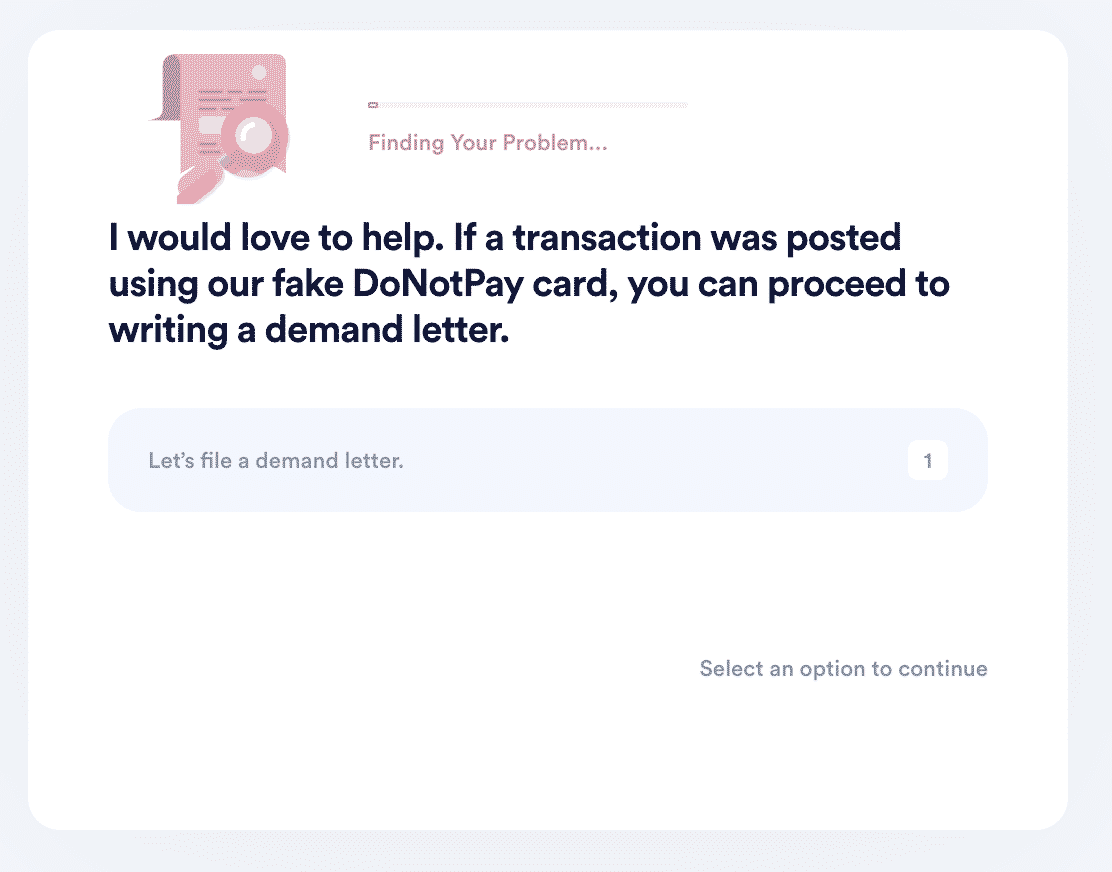
- Answer a few questions through our chatbot about the merchant and transaction.
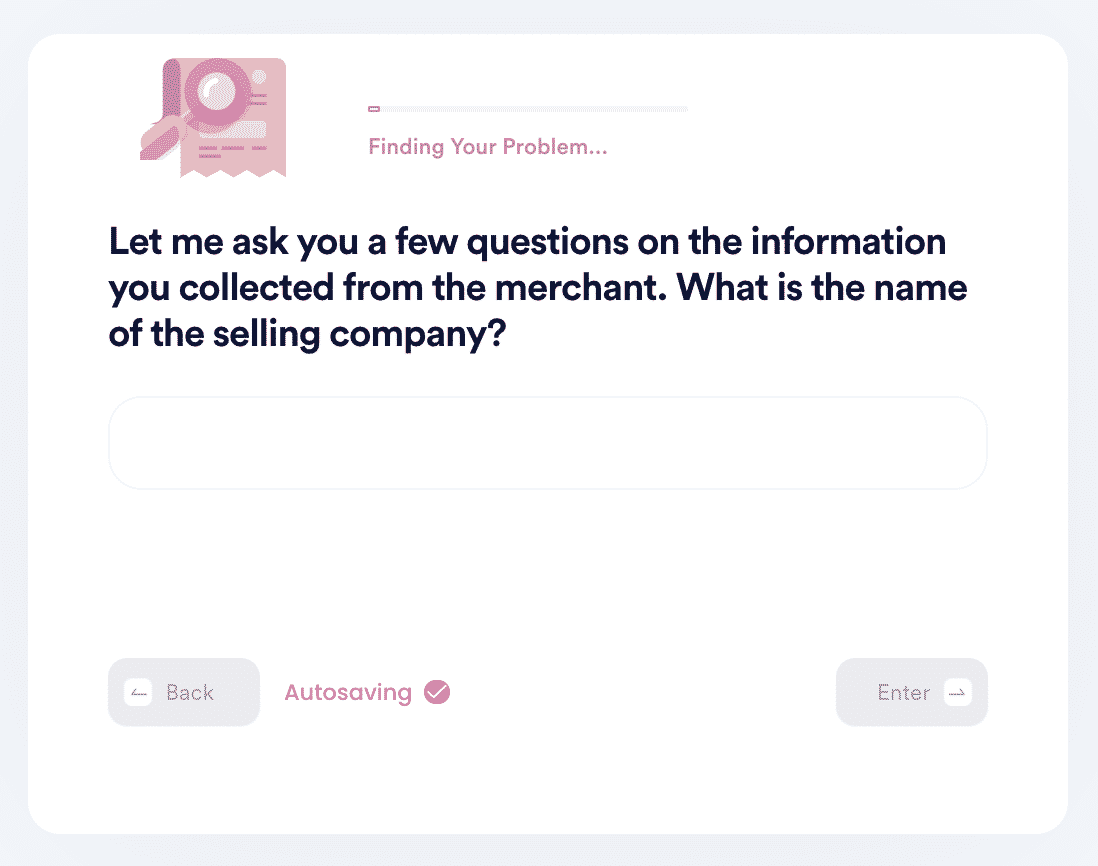
What Else Can DoNotPay Do?
DoNotPay can help you solve several problems faster and with less stress than if you had to manage them on your own. Some of these include:
- Canceling subscriptions
- Filing a claim in small claims court
- Requesting a refund
If you've experienced price gouging in South Carolina, contact DoNotPay today.


